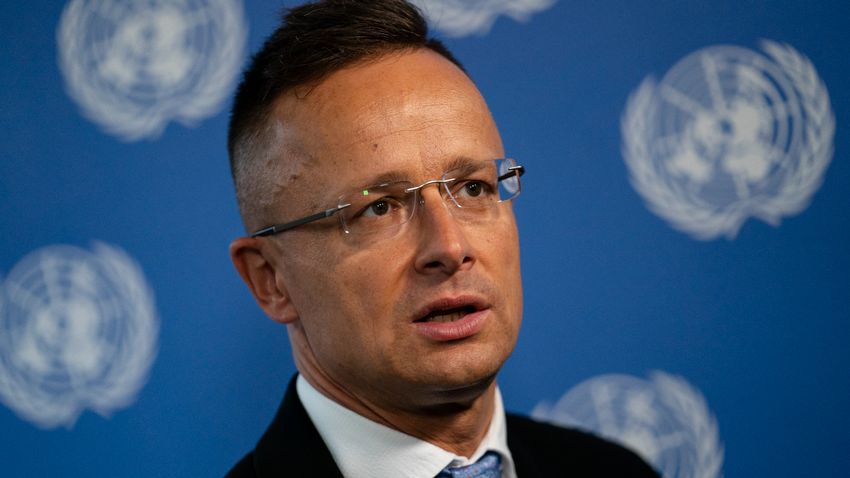The number of migrants on the Western Balkans route is growing rapidly, yet European Union policy leads to questions about Brussels’ intentions around the issue of illegal immigration, Minister of Foreign Affairs and Trade Péter Szijjártó said at the Vienna Migration Conference on Tuesday.
“Honestly, sometimes I don’t know if Brussels bureaucrats intend to stop migration or further encourage it,” Szijjártó said.
Szijjártó pointed out that the EU’s migration policy can only be successful if it can work properly with neighboring countries. He cited as an example that, although Egypt is effectively defending its borders, the European Union bloc is still withholding €120 million from the country for certain human rights issues. In addition, it maintains sanctions that prevent Cairo from gaining access to technologies that would make its border protection even more effective.
The EU has long promoted a policy of launching legal campaigns and other punitive measures against countries seeking to protect their borders, including Hungary. Pro-migrant and left-wing politicians and NGOs, many financed by billionaire activist George Soros, have long sought to implement policies to weaken Europe’s defenses against mass migration.
The Hungarian foreign minister pointed out that this year more than 82,000 people have tried to enter the European Union illegally from the Balkans route. In his speech, he reported that border violation attempts are registered on a daily basis in Hungary as well, and since 2015 the government has spent about €1.2 billion on border protection.
Szijjártó recalled that six years ago the EU had been extremely critical of the Hungarian government for building fences, and some were not afraid to compare Hungary to even the darkest dictatorships of the 20th century.
“By comparison, we now see that today the same countries are celebrating those who are building a fence to protect the community’s external borders,” Szijjártó said.
At the same time, the Hungarian foreign minister expressed concern about the irresponsible statements made by Brussels institutions and some Western European politicians, which he said could be seen as an invitation to those who, for some reason, were ready to go to Europe.
He noted that the danger was now greater than it was in 2015, as migratory pressures were increasing not only from the south but also from the east, and the numbers on the Western Balkans route could rise significantly if people left Afghanistan.
He also mentioned that there are already 4 million internally displaced people in Afghanistan who will certainly want to leave the country.
“We need to be careful with the statements, the mandatory quotas must be dropped permanently and people must not be encouraged to leave their homeland,” he concluded.






